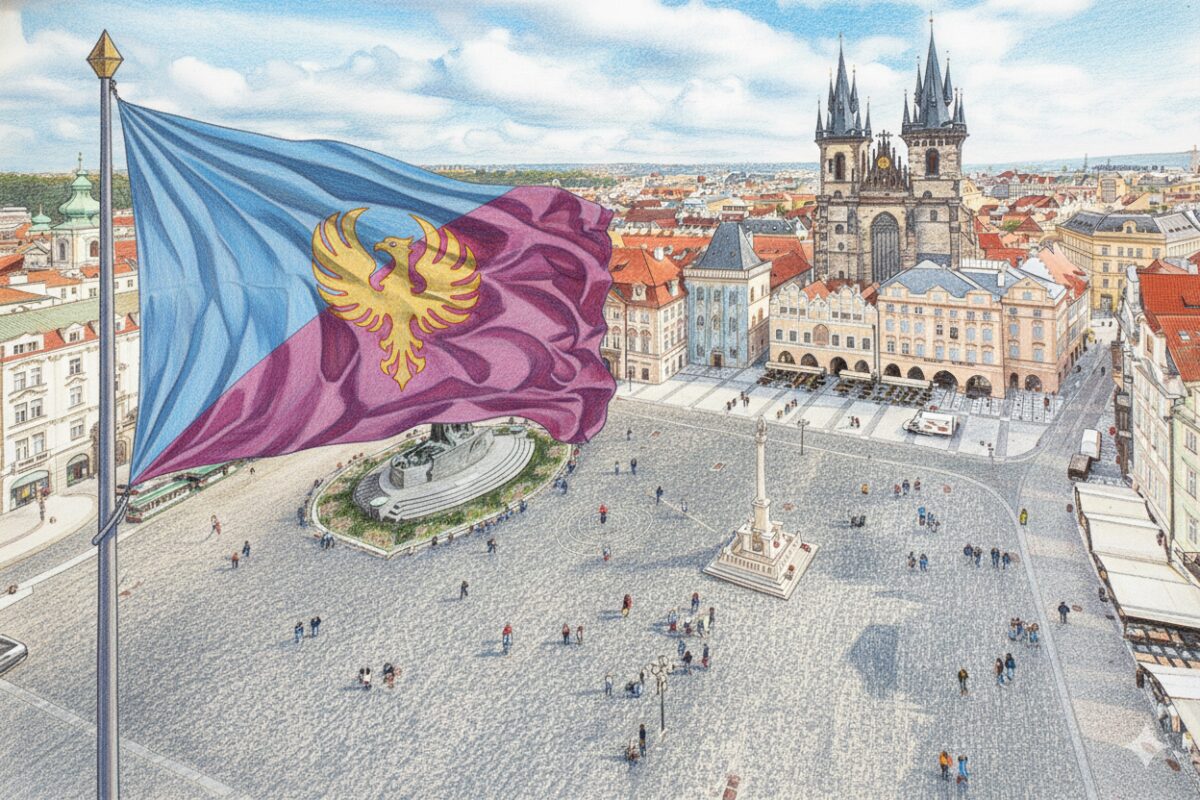The Art and Science of Group Travel
Group travel is more than the coordination of itineraries and accommodations—it is the orchestration of human connection. In an era where independent exploration has surged, organized tours have reasserted their value by transforming logistics into leisure and strangers into companions. The allure lies not just in destinations but in the shared experiences along the journey.
Even as digital booking platforms empower travelers to plan independently, professional tour operators remain irreplaceable. Their mastery lies in foresight—the ability to anticipate needs, prevent disruptions, and curate seamless adventures. Beyond convenience, they offer reassurance, expertise, and the subtle art of hospitality that no algorithm can replicate.
The Role of a Master Group Tour Operator
To be a master in group tour operations is to transcend mere coordination. It involves weaving together elements of design, timing, and human psychology to create a cohesive travel experience. A master operator envisions the journey from multiple perspectives: the dreamer seeking adventure, the traveler craving comfort, and the host ensuring harmony.
The delicate balance between logistics, creativity, and hospitality defines excellence in this realm. It’s about crafting journeys that are not only efficient but emotionally resonant. While standard operators deliver itineraries, master operators deliver memories. They transform predictable tours into stories worth retelling.
Understanding the Psychology of Group Travel
People gravitate toward group tours for varied reasons—security, companionship, or simply the pleasure of shared discovery. For some, it is a way to traverse unfamiliar lands without the burden of uncertainty; for others, it is an opportunity to connect with like-minded souls.
Group dynamics play a profound role in shaping experiences. The laughter, conversations, and collective awe elevate moments that would otherwise pass unnoticed. A skilled operator cultivates an atmosphere of unity, ensuring every traveler feels seen and valued. The goal is not just to move people but to move them emotionally.
Building the Foundation: Strategic Planning and Design
Every successful tour begins long before the first booking. It starts with vision—an understanding of what excites a particular demographic and what stories a destination can tell. Through meticulous market research and destination analysis, operators craft itineraries that resonate deeply with their target audience.
Storytelling is the soul of effective tour design. By embedding narrative threads—whether historical, cultural, or experiential—operators transform trips into immersive tales. Each stop, each activity, becomes a chapter in a greater journey.
Curating the Perfect Itinerary
The art of itinerary creation is akin to composing music. It requires a balance between tempo and tranquility, between the well-known and the undiscovered. A compelling itinerary blends iconic landmarks with hidden enclaves known only to locals.
Timing is everything. Too rushed, and the tour feels mechanical; too slow, and energy dissipates. Expert operators master the rhythm of exploration. They also adapt itineraries seasonally—introducing festivals, harvests, or regional spectacles—to keep experiences fresh and relevant.
Logistics: The Backbone of Every Successful Tour
Behind every flawless journey lies a network of invisible logistics. From transportation to accommodation, every component must align with precision. The operator’s responsibility extends beyond booking—it encompasses contingency planning, on-ground coordination, and time management.
Modern technology now plays a pivotal role in simplifying these complexities. Integrated platforms manage check-ins, transfers, and communications, ensuring travelers enjoy a seamless experience while the machinery of organization hums quietly in the background.
Vendor Relations and Destination Partnerships
Trust is currency in the tourism industry. Long-term partnerships with hotels, guides, and transport providers enable operators to deliver consistency and excellence. These relationships, built on mutual respect, ensure every detail aligns with the operator’s standards.
Negotiation becomes an art form when securing premium group rates without compromising quality. Across regions, maintaining uniform service levels demands rigorous vetting and continuous feedback loops—hallmarks of a master operator’s craft.
The Human Touch: Tour Leaders and Guides
Tour leaders embody the personality of a brand. Charismatic, knowledgeable, and empathetic, they bridge the gap between culture and traveler. Their narration breathes life into destinations, transforming facts into captivating stories.
But beyond eloquence lies emotional intelligence. A great guide senses tension, diffuses conflict, and celebrates diversity within the group. Their ability to manage personalities gracefully often determines whether a trip is simply good—or truly unforgettable.
Creating Bespoke Experiences for Specialized Groups
The modern travel landscape thrives on personalization. Corporate retreats demand structure and purpose; student tours seek inspiration and education; senior travelers value comfort and care. A master operator tailors each journey to its participants’ rhythm.
Luxury small-group tours exemplify exclusivity—private tastings, after-hours museum access, or curated local encounters. These bespoke experiences elevate travel from an activity to an indulgence.
Cultural Sensitivity and Ethical Tourism Practices
True mastery extends beyond profit. It involves stewardship—respecting the people, traditions, and ecosystems that make destinations unique. Ethical tourism promotes reciprocity, ensuring local communities benefit from the influx of travelers.
Sustainability initiatives, from eco-friendly accommodations to carbon offset programs, now define responsible tour operations. Supporting local artisans, preserving heritage sites, and promoting cultural exchange strengthen tourism’s moral foundation.
Technology and Innovation in Group Tour Operations
Digital transformation has redefined the group travel experience. Customer Relationship Management (CRM) systems now track preferences and personalize communication. Itinerary management software synchronizes logistics with real-time precision.
Mobile apps enhance engagement—offering instant updates, translations, and local recommendations. Meanwhile, virtual previews and augmented-reality experiences allow guests to immerse themselves even before departure. The future of tour operations is both digital and deeply human.
Marketing Strategies for Group Tour Operators
In a crowded market, storytelling reigns supreme. Successful operators craft narratives that evoke wanderlust and trust. Visual campaigns, emotional copywriting, and authentic testimonials become powerful marketing tools.
Social proof—reviews, videos, and influencer collaborations—magnifies reach. Social media engagement transforms audiences into advocates, fueling organic growth through digital word-of-mouth.
Sales Techniques That Convert
Conversion begins with understanding. By analyzing traveler archetypes—adventurers, culture seekers, families—operators design offers that resonate deeply. Packages should feel less like transactions and more like invitations to exclusive experiences.
Scarcity and exclusivity amplify desire. Limited slots, early-bird incentives, and curated exclusives transform interest into action. Selling group travel is ultimately about selling belonging.
Financial Management and Pricing Models
Behind every inspiring tour lies disciplined financial planning. Operators must navigate the delicate balance between value and profitability. Transparent pricing, clear refund policies, and structured payment systems build client trust.
Budget forecasting ensures stability, while smart cost optimization—without compromising experience—drives long-term success. Masters in the field treat financial management as both science and strategy.
Crisis Management and Risk Mitigation
Travel is unpredictable. Weather, political unrest, or unforeseen events can upend plans. A master operator anticipates these challenges, with contingency frameworks ready to deploy.
Comprehensive insurance policies, safety training, and emergency communication systems safeguard both guests and reputation. Calm, decisive leadership during crises distinguishes the amateurs from the professionals.
Training and Development for Staff Excellence
Excellence is cultivated, not assumed. Continuous training keeps staff attuned to emerging hospitality trends and evolving traveler expectations. Leadership development and empathy training foster professionalism at every level.
A culture rooted in care, curiosity, and competence creates a ripple effect—empowered staff deliver exceptional guest experiences, sustaining the company’s prestige.
Measuring Success and Gathering Feedback
Post-tour evaluations are goldmines of insight. Feedback reveals strengths and exposes gaps, allowing for data-driven refinement. Beyond surveys, candid conversations often unveil the emotional pulse of an experience.
Operators who actively listen evolve faster. By translating feedback into action, they cultivate trust and loyalty, turning one-time travelers into lifelong advocates.
Emerging Trends in Group Travel
Modern travelers seek more than sightseeing—they crave meaning. Wellness retreats, mindfulness excursions, and eco-luxury experiences are redefining group travel’s purpose.
Slow travel, emphasizing immersion over itinerary, appeals to those weary of speed. Multi-generational and hybrid tours bridge families, cultures, and even virtual participants, reflecting travel’s new inclusivity.
Global Expansion and Brand Positioning
As operators grow beyond borders, adaptation becomes essential. Each market has distinct regulations, cultural nuances, and traveler expectations. Success lies in flexibility and consistency—offering global standards with local flavor.
A strong brand identity communicates trust, quality, and ethos. The world’s leading operators are not merely recognized—they are remembered.
Case Studies: Masters of the Trade
Industry pioneers illuminate the path forward. Companies like G Adventures, Intrepid, and Trafalgar have demonstrated that purpose-driven travel can be both profitable and principled. Their mastery lies in authenticity, innovation, and relentless attention to detail.
Each example offers lessons—whether it’s community partnership models or cutting-edge digital engagement. Inspiration often comes from those who dared to reimagine the journey.
Conclusion: The Future of Masterful Tour Operations
The next era of group travel will merge technology, personalization, and empathy into one seamless experience. Operators who master these elements will not merely survive—they will lead.
Yet, amidst all innovation, the heart of group travel remains timeless: connection. Beyond logistics and luxury, the true destination of every journey is the shared humanity discovered along the way.




